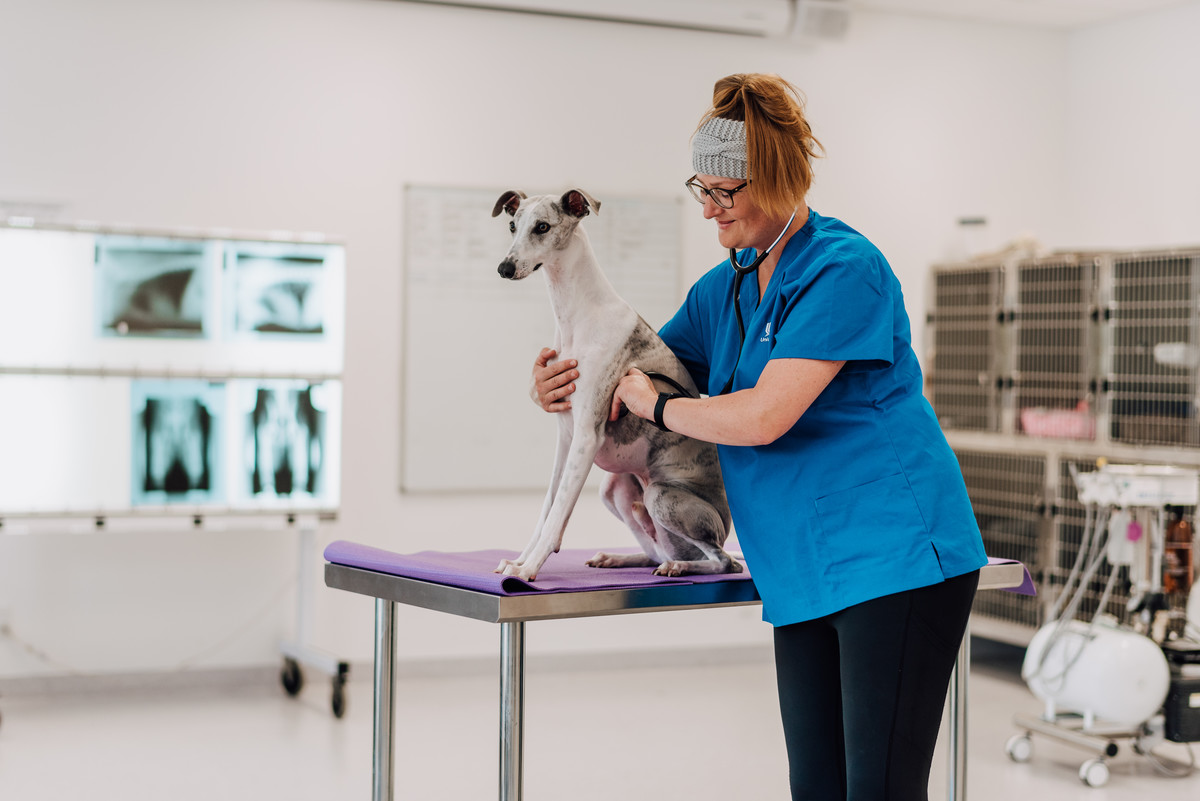Programme overview
Please Note: This programme replaces the old NZ Certificate in Animal Technology (NZCAT) and NZ Diploma in Veterinary Nursing (NZDVN).
The New Zealand Diploma in Veterinary Nursing (Companion Animal Nursing) provides a platform for you to build the hands-on skills and knowledge you need to become a qualified veterinary nurse and help animals maintain the best possible health and quality of life in a clinical environment.
Through demonstrations, classes, practical sessions, group work, small group tutorials, and real-life case studies, you'll learn how to manage animal patients and clients, and contribute to the care of animals. There are plenty of opportunities to put theory into practice at your choice of external clinics across Aotearoa.
You will graduate as a qualified veterinary nurse who is able to work effectively and efficiently in a clinical setting, and you’ll be eligible for registration with the New Zealand Veterinary Nursing Association.
Highlights
- Build advanced technical skills through a significant amount of clinical practice at external clinics across New Zealand
- Develop a thorough understanding of what's considered best practice in a clinical environment, and the ethical and welfare implications of veterinary care
- Learn from experienced lecturers who are knowledgeable in veterinary medicine/science, animal health and welfare, microbiology, genetics, and animal behaviour
- Benefit from a varied learning approach that includes practical sessions, group work, online/small group tutorials, and one-on-one supervision
- The opportunity to apply for a practical placement at the New Zealand Centre for Conservation Medicine at Auckland Zoo (placements limited)
Onsite Learners
You will attend classes onsite at our Mt Albert campus two to three days a week depending on your timetable. Your other two to three days will be spent in your practicum placement or self-directed study.
Distance Learners
To study from a distance, you need to be self-motivated, committed and have excellent time management skills. You need to attend all block courses, exams, practical assessments, work experience, as well as complete your self-directed study (research, reading, revision) and assessment writing.
For this delivery you will be mainly studying online. In addition to this, you will have four block courses to attend at our Mt Albert campus each year. You'll also need to have consistent access to a computer with a reliable internet connection and appropriate office software i.e. Microsoft Office, which we'll provide once you‘re enrolled.
Note: Second year courses will be made available soon as the timetable is finalised.
Admission requirements
What you will need to study this programme.
Domestic students
International students
Academic requirements
Applicants must be at least 16 years of age when they begin their studies, and they should meet the country-specific admission requirement;
And English entry requirements;
If English is not your first language, you will also need at least one of the following qualifications:
- An equivalent of IELTS (Academic) with minimum band scores of 6.0 with no band score lower than 5.5 or
- University Entrance literacy: 12 Credits at NCEA Level 2 or above in English or Māori (6 in reading, 6 in writing)
- Evidence of English language proficiency as outlined in the NZQA Rules on the Unitec English Language Requirements for International Students Web-page.
Don’t meet these Academic requirements?
- If you don’t meet the academic criteria, our Bridging Education Programmes can help you qualify. Apply online, and we’ll discuss your next steps.
- If you don’t meet the above criteria, special or discretionary admission may apply; your eligibility will be determined at the interview.
Non-academic requirements
You will also need to complete the Health and criminal conviction information
Courses and timetables
For more details on the courses including timetables, please click on the course names below.
| Courses | Credits | Aim |
|---|---|---|
| Veterinary Nursing Practice (ANML5001TP) | 15.0 credits (0.125 EFTS) | The aim of this course is to develop the knowledge, skills, and competencies to work in a professional, safe, and effective manner in an animal health care environment. |
| Anatomy and Physiology (ANML5002TP) | 15.0 credits (0.125 EFTS) | The aim of this course is to develop the knowledge, skills, and competencies relevant to basic animal anatomy and physiology to support animal health and welfare. |
| Animal Husbandry and Behaviour (ANML5103TP) | 15.0 credits (0.125 EFTS) | The aim of this course is to develop the knowledge, skills, and competencies to provide safe and appropriate husbandry and handling to support companion animal health and welfare. |
| Companion Animal Practicum I (ANML5104TP) | 15.0 credits (0.125 EFTS) | The aim of this course is to develop the knowledge, skills, and competencies to manage the husbandry, hygiene and handling of animals as part of a multidisciplinary team. |
| Introduction to Anaesthesia and Analgesia (ANML5105TP) | 15.0 credits (0.125 EFTS) | The aim of this course is to develop the knowledge, skills, and competencies to assist with anaesthesia and analgesia. |
| Introduction to Medical Nursing (ANML5106TP) | 15.0 credits (0.125 EFTS) | The aim of this course is to develop the knowledge, skills, and competencies to care for companion animals in a veterinary clinic. |
| Introduction to Surgery and Diagnostics (ANML5107TP) | 15.0 credits (0.125 EFTS) | The aim of this course is to develop the knowledge, skills, and competencies to understand diagnostic procedures and assist with the nursing of routine surgical patients. |
| Companion Animal Practicum II (ANML5108TP) | 15.0 credits (0.125 EFTS) | The aim of this course is to develop the knowledge, skills, and competencies to provide nursing care for surgical and hospitalised patients as part of a multidisciplinary team. |




